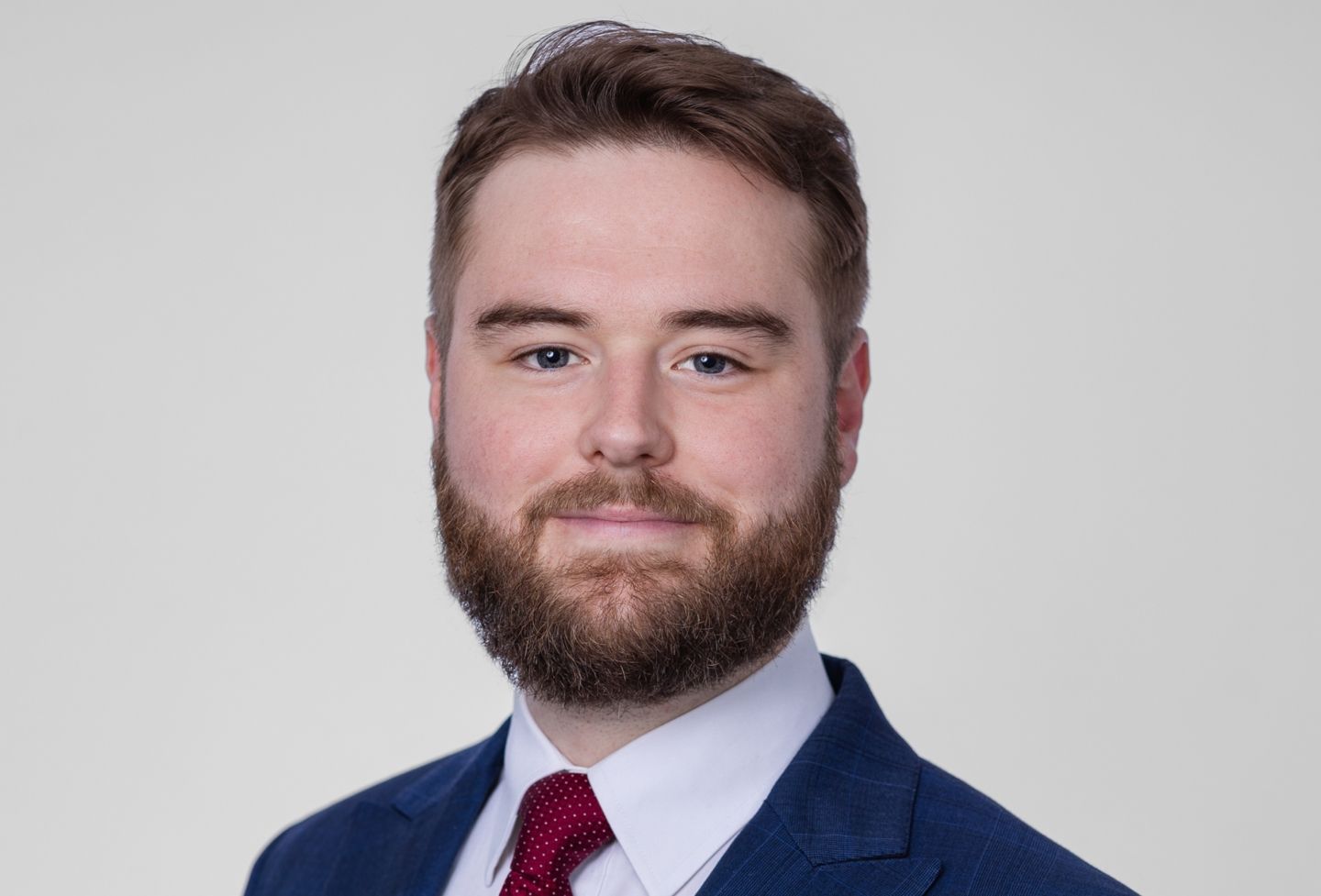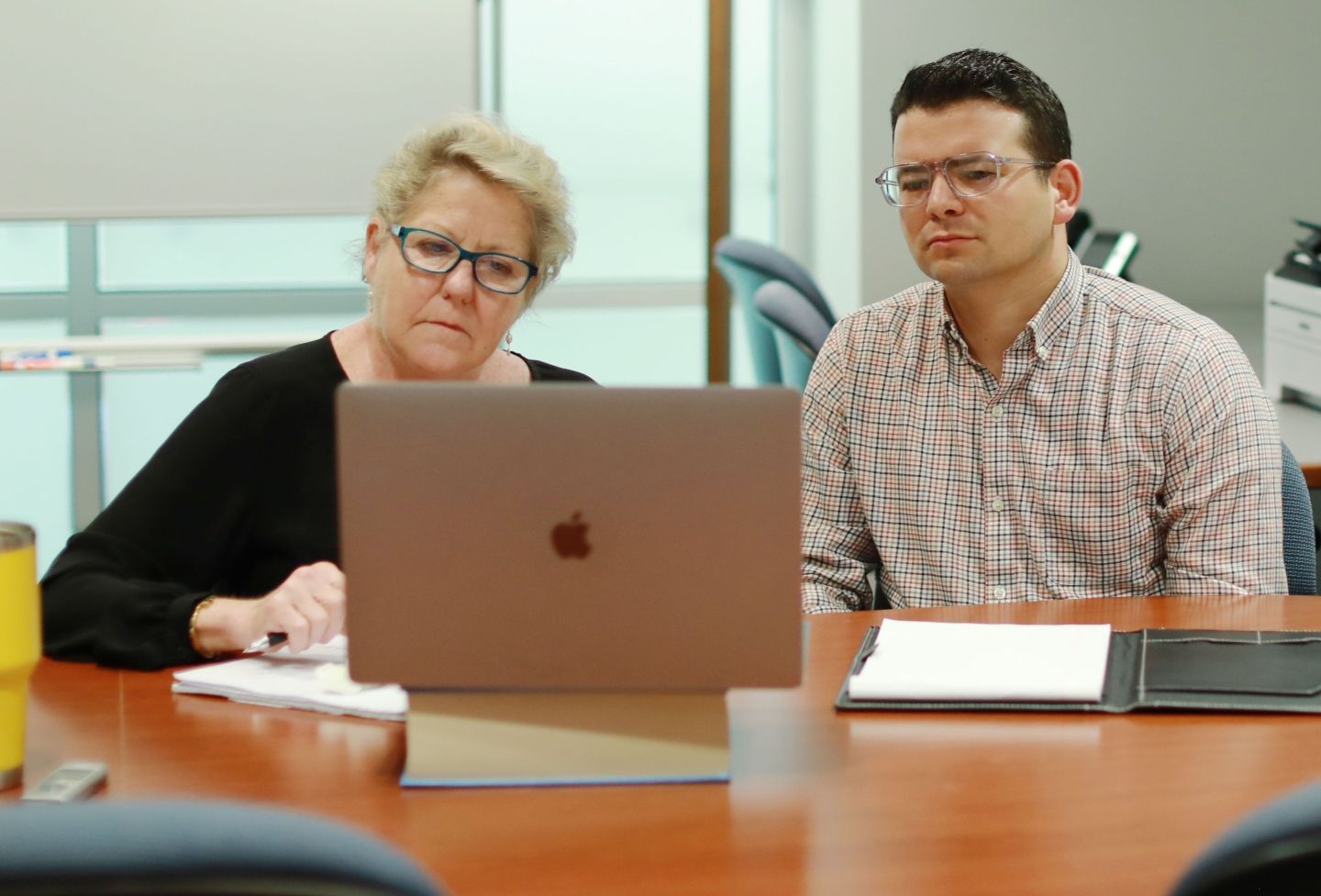Zane Memeger, former U.S. attorney for the Eastern District of Pennsylvania and current partner at Morgan Lewis, will deliver the annual orientation lecture to students at the University of Virginia School of Law on Aug. 21.
Memeger is a 1991 graduate of the Law School who, while a federal prosecutor, was noted for bringing charges in high-profile cases, including against public officials in Philadelphia.
In advance of his talk at UVA Law, Memeger answered a few questions about his career — and talked about why so many high-profile prosecutors emerged from his group of Law School friends. We interviewed him before recent events in Charlottesville, but updated the Q&A this week.
What is your reaction to the events this weekend in Charlottesville?
The person who I am today is due in large part to the time I spent in Charlottesville, at a University founded by a great man who admittedly had his flaws. The events this past weekend do not reflect Charlottesville today or who we are now as a nation, and I am saddened and disheartened that there are still people who think that using violence to express their hatred based on race, religion and nationality is okay. At this juncture in our history, it is more important than ever for those of us with a moral compass to engage and stand up for the American principles and values that make this country great. The evil that displayed itself over the weekend can only be defeated if we speak up and take a stand together. We know from history that silence and complacency is not a viable alternative here.
Philadelphia Magazine referred to you as a “pit bull” for your high-profile prosecutions as U.S. attorney for the Eastern District of Pennsylvania. How did you think of yourself while in that role?
Honestly, I find the term “pit bull,” and more recently, “bad-ass prosecutor,” somewhat humorous. I took on the job of U.S. attorney knowing that the goal is to do the right thing at the end of the day, whether that means bringing charges, dismissing charges or declining to bring charges. Investigating cases, especially political corruption cases, is not easy and one does need to be dogged in order to find out the truth as to what happened. When you have continued success pursuing a particular priority with the help of a tremendous team of assistant U.S. attorneys and support staff, I think people take notice because you are working very hard trying to keep the political system and government fair and honest for the people. At times you feel like throwing up your hands and saying that it’s too hard to soldier on; fortunately, it is not in my nature to act on such impulses.
You oversaw high-profile terrorist, corruption and human trafficking cases, among many others. What was the hardest case you worked on? Can you tell us a story from working it?
As the U.S. attorney in a very large district, I was not handling the day-to-day case and investigative work. Rather, I was overseeing the case portfolios of 130 federal prosecutors and working with them to develop investigative and prosecutorial strategies that would yield success. My job was to set priorities and make sure that those priorities were being met through the cases the office was handling. After national security, a major priority for me was dealing with public corruption in Philadelphia. I truly believe that we have a remarkable system of government that is threatened when officials, regardless of party affiliation, are allowed to engage in criminal and unethical conduct that undermines the public’s faith in government. Every case we did in this arena presented its challenges, and the Supreme Court’s decisions in Skilling and McDonnell did raise the bar in terms of what federal prosecutors must prove at trial in order to secure convictions for abusing the public’s trust. These cases caused me to lose sleep at times as I wrestled with making hard decisions, including whether to move forward with cases involving judges, public officials and members of Congress. Despite the outcomes of certain cases, I left the office last December knowing that I had made the right call in every single case we either pursued or declined.
Can you talk a little about your interest in youth intervention and fighting recidivism? Have those programs you were involved with begun to pay off?
I think my interest in youth intervention and fighting recidivism is an extension of something that started when I studied political science at James Madison University and received a minor in criminal justice. In law school, I had the chance to work in a leadership role for the Post-Conviction Assistance Project, where I ran a literacy program for inmates at the Albemarle County Jail during my 2L year; and during my 3L year supervised law students who were working with law professors to represent persons convicted of crimes in challenging their convictions or conditions of confinement. Having spent 18 years of my legal career as a federal prosecutor, I have come to the realization that you cannot arrest your way to community safety, as there are so many variables that arguably lead to crime. Variables such as exposure to violence as a young child, a lack of educational opportunities, a lack of job opportunities, a lack of affordable housing, substance abuse issues, a lack of facilities to treat mental health problems, etc.
By taking steps to provide young people with educational programs and after school programming, and by taking steps to help men and women coming home from prison with the hurdles they face re-entering society, you improve safety by breaking the cycle of recidivism and the school-to-prison pipeline. The Supervision to Aid Reentry Program in the Eastern District of Pennsylvania focused on violent federal offenders coming home from prison, and by working with them to get jobs, education, housing, driver’s licenses, mental health treatment, substance abuse treatment and other help, we were able to reduce the recidivism rate from more than 60 percent to 11-18 percent in any given year. That was a huge win from my perspective, one that allowed me to allocate my resources to other enforcement priorities.
Is it fair to say then experiences like the Post-Conviction Assistance Project were formative?
Yes, I think that my Post-Conviction Assistance Project experience taught me the importance of public service and using your legal skills to benefit the community in some way. Each of us can make a difference. In the private sector, I have continually looked for opportunities to serve the community. I have served as an advocate for children working with the Support Center for Child Advocates, I have served as court-appointed pro bono counsel for indigent defendants in federal court, and I have supervised and mentored associates working on cases on behalf of the Education Law Center in Philadelphia. Currently, I am on the board of directors for the Pennsylvania Innocence Project and working on issues related to criminal justice reform.
It’s pretty amazing that you were in the same law class as two other former U.S. attorneys, Tim Heaphy ’91 and Todd Graves ’91, and a year apart from a third, Neil H. MacBride ’92. This is not coincidence, is it?
Former Attorney General Eric Holder would regularly joke with [me, Heaphy and MacBride] that there must have been something in the water at our house on Cleveland Avenue, as Tim, Neil and I also lived together during the 1989-1990 school year. [Graves served as a U.S. attorney under President George W. Bush from 2001-06.] Since law school, our careers have followed similar paths, moving back and forth between the private sector and DOJ. We did have a fourth roommate that year, Mike Oyler ’91, who eventually moved to Louisville, Kentucky, and was a partner and good friend of the U.S. attorney from the Western District of Kentucky, with whom we eventually served under the Obama administration. When Neil approached us as a 1L looking for a place to live, I surely could not have predicted at that time how the road we each would eventually travel from Virginia Law would unwind and remain connected at the same time.
You returned to Morgan Lewis as a partner after resigning from the U.S. attorney’s office at the end of last year. You could have gone anywhere, but you chose to stay with a firm and city in which you have invested. Can you speak to that, and what you are working on these days?
I moved to Philadelphia looking for a city that would provide me with a good balance between New York and D.C. I must say that neither Morgan Lewis nor the city of Philadelphia has disappointed me, and they have both given me some tremendous opportunities to carry on the UVA Law tradition of giving back to the community. In short, the post-U.S. attorney employment choice was a pretty easy one for me to make.
I’m currently in the government investigations and white-collar practice group, working on corporate compliance issues and representing companies across various industries facing government scrutiny. I truly find it rewarding to help well-intentioned people and organizations navigate a regulatory and legal landscape that is not often so clear. I believe in accountability where the facts warrant such a conclusion, but everyone is entitled to be treated fairly during the process so that the truth determines the final outcome. Prosecutors and investigators have tremendous power in our criminal justice system, which needs to be tempered at times through effective advocacy.
In returning to Charlottesville for your talk, what are you looking forward to most?
Catching up with some old friends like Sarah Davies ’91, assistant dean of student affairs, and Tim Heaphy ’91, who still resides in Charlottesville after stepping down as U.S. attorney for the Western District. I’m also looking forward to interacting with the new students at what I consider a very special and formative place for me. The law professors at Virginia Law continue to remain simply outstanding and engaged with the students. I’m still struggling to wrap my head around the fact that it has been almost 30 years since my first-year orientation session.
What advice do you have to offer students entering the Law School as 1Ls?
Play as much or as little softball as you like. The law school experience for each one of you will be different, but that experience will share some commonalities that will bind you forever with your classmates. Some of you will find it easier than others to meet the academic challenges presented by your professors, some of you will find it easier to be open to different points of view than others, and some of you will struggle as you try to figure out what you want to do after law school. If you take this opportunity to challenge yourself and engage, you will be a better lawyer and well equipped to meet the challenges of whatever career path you ultimately choose. Nothing is written in stone, so always take time to evaluate where you are and where you want to be. I’ve been where you are and I can honestly tell you that greater things lie ahead when it finally comes time to eventually leave UVA Law for your next adventure. Enjoy the ride, it goes by quick.
Founded in 1819, the University of Virginia School of Law is the second-oldest continuously operating law school in the nation. Consistently ranked among the top law schools, Virginia is a world-renowned training ground for distinguished lawyers and public servants, instilling in them a commitment to leadership, integrity and community service.


